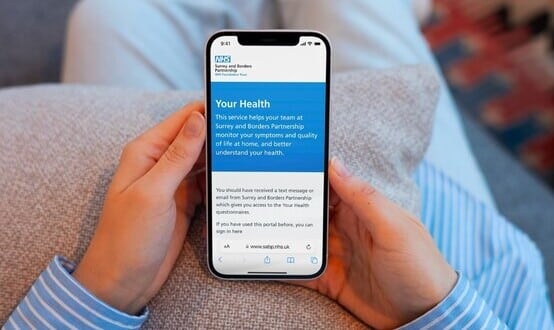Vitality members benefit from AI-powered mental health support

Vitality has completed a pilot that found its health insurance members who used conversational AI support through the Wysa app demonstrated clinically significant reductions in anxiety and depression symptoms.
A cohort of 60,000 UK VitalityHealth members were identified, who had been screened as likely to need support for their mental health. This group were offered access to Wysa premium for a year. During the onboarding process, each user’s anxiety and depression score was measured using standardised clinical questionnaires.
Improvements in users’ scores were noted after 28 days, and were statistically and clinically significant across the group. The anxiety screening showed a 31% reduction in moderate anxiety symptoms and a 38% reduction in severe anxiety.
The depression screening questionnaires revealed a 40% reduction in symptoms for those suffering moderate depression and a 35% reduction in symptoms for severe depression.
In addition, 83% of Vitality members in the pilot said they found Wysa helpful, with 88% returning repeatedly to use the app.
Wysa founder, Ramakant Vempati, said: “The improvements in scores are extremely positive and show that Wysa helps at clinically significant levels for those suffering moderate to severe symptoms. This is further evidence that Wysa genuinely helps people on a large scale.”
Regular progress tracking and notifications for users
The Wysa app uses natural language processing to understand the user’s free text inputs with the AI chatbot. An automated self-care pathway is generated by Wysa based on the triage scores and AI conversation. Importantly, every Wysa response is written by a qualified psychologist and tested for clinical safety.
The AI chatbot is able to guide users through Wysa’s library of evidence-based mental well-being exercises. It also sends notifications at agreed check-in times and will recommend specific exercises based on user needs.
Weekly reports and personal progress tracking affirm the efforts of the user.
Dr Katie Tryon, director of health strategy, Vitality, said: “The impact of digital self-help for members we identified as moderate or high need is significant. The results demonstrate the potential as a preventive tool as well as providing on-demand support for those who need it. We look forward to continuing to work with Wysa to extend access to more Vitality members.”
The use of digital therapeutic health support is being more widely used to help mental health. A year ago Dorset Healthcare University NHS Foundation Trust rolled out the Wysa AI-chatbot to patients before, during and after NHS-prescribed talking therapies. In September the app was also made available to those aged 13-18 who were with Hammersmith, Fulham, Ealing and Hounslow Mind.
Vitality now plans to increase access and utilisation to its wider member population for both prevention and early intervention in mental health. It hopes this will both improve outcomes for its uses, and reduce costs for Vitality.




